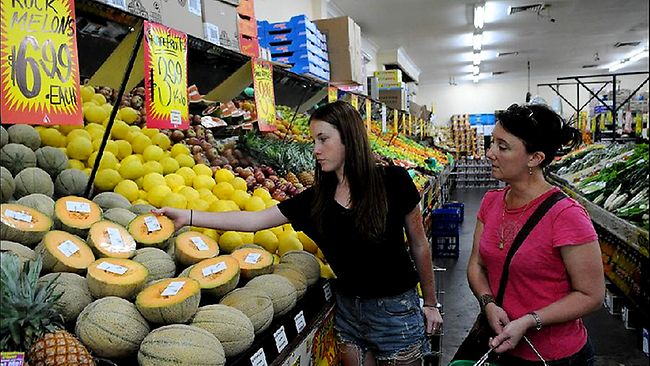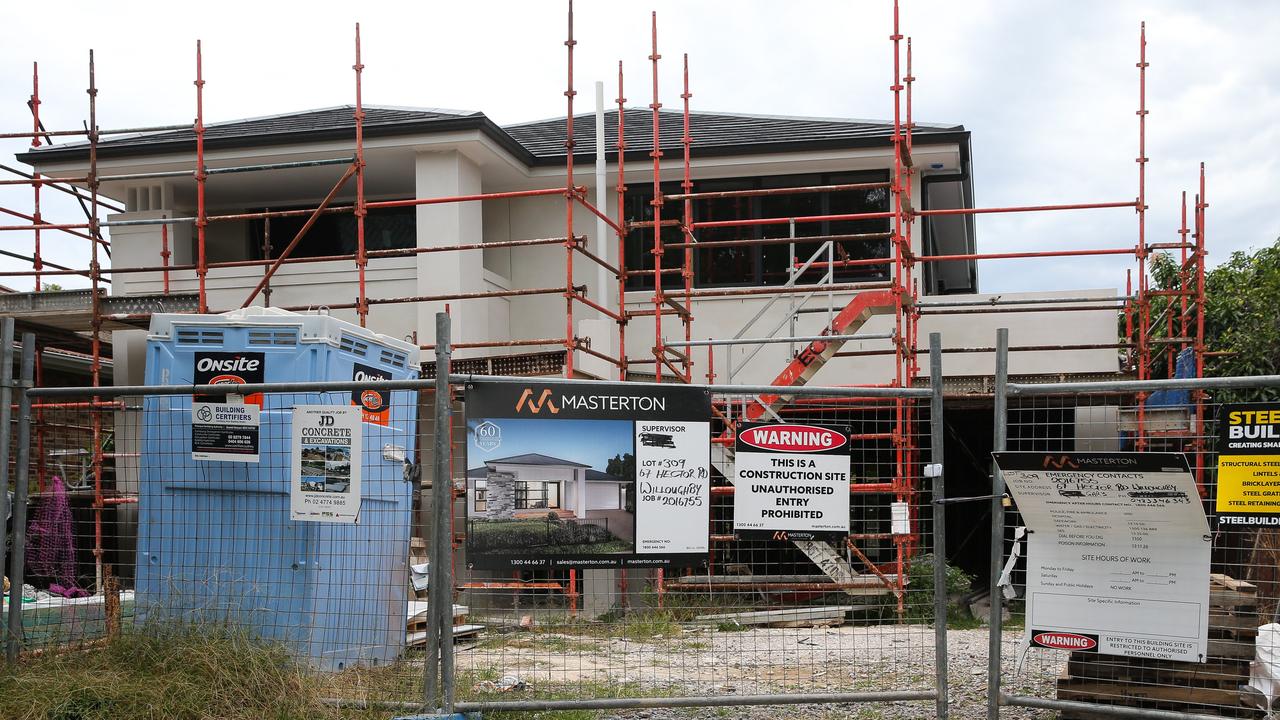Low inflation kills interest rate rise fears
AUSTRALIANS can breath easy - inflation remains well outside the danger zone that would trigger a rate rise next week.

HOMEOWNERS can breathe easy. Australia's inflation rate remains well outside the danger zone that would help trigger an interest rate rise next week.
Futures market betting has long written off any chance of a rate hike when the Reserve Bank (RBA) board next meets and today’s weaker-than-expected inflation numbers add further weight to the case for the RBA to sit on the sidelines.
The consumer price index- Australia’s key measure of inflation - rose just 0.4 per cent in the December quarter, well below expectations for a 0.8 per cent rise.
Inflation grew 2.7 per cent on an annual basis.
CommSec chief economist Craig James said it was “certainly very encouraging for homeowners that interest rates are going to remain unchanged for some time”.
“It’s also very encouraging in that we had some sharp rises in fruit and vegetable prices in the quarter and still managed to produce a very, very low outcome,” Mr James said.
“Provided consumers continue to shop around (and) put pressure on retailers to keep prices low then we’re going to see inflation remaining low here in Australia even despite the one-off impact from the floods”
On an underlying basis, using the average of measures favoured by the RBA, inflation rose 0.4 per cent or 2.25 per cent on an annual basis.
This is well within the RBA’s target inflation range of 2 to 3 per cent.
Food prices escalate
Food topped the list of price rises with the Australian Bureau of Statistics (ABS) data also revealing double-digit increases in quarterly fruit and vegetable prices.
"The most significant price rises this quarter were for fruit (15.5 per cent), vegetables (11.4 per cent), domestic holiday travel and accommodation (3.8 per cent) and automotive fuel (2.1 per cent)," the ABS reported.
The most significant offsetting price falls were in pharmaceuticals (-6.2 per cent), deposit and loan facilities (-1.3 per cent), motor vehicles (-1 per cent), audio, visual and computing equipment (-4.8 per cent) and motor vehicle repair (-1.9 per cent)."
The ABS noted that these figures did not take into account Queensland's flooding, which began in late December and is expected to push up the prices of some fruit and vegetables.
Inflation spike ahead
Treasurer Wayne Swan said the inflation rate is set to spike in the March quarter due to the impact of the floods.
"Despite the fact that these figures are lower than anticipated we do know that the next quarter figure, the March quarter, will see a spike, particularly in vegetable and fruit prices," Mr Swan said.
Many families would be doing it tough at the checkout in the coming months, he said.
The economy remained strong, Mr Swan said.
"There is a strong pipeline of investment and of course there is reason to be very optimistic about the future.''
Flood levy "crazy"
Meanwhile Opposition treasury spokesman Joe Hockey says the Government would be "crazy'' to introduce a Queensland flood levy in the face of rising fruit and vegetable prices.
Mr Hockey said the spike in food staples - before the effects of the Queensland floods are taken into account - sounded a "warning bell" for the levy being considered by the Government.
"You would have to have rocks in your head to impose a new tax on Australian families on the back of rising fruit prices and veggie prices in the last three months,'' Mr Hockey said.
"This Government needs to understand that higher interest rates arising from the decisions on Melbourne Cup Day have had a profound impact on Australian families, and now with everyday items such as fruit and veggies going through the roof, even before the impact of the floods, Australian families are facing a much tougher 2011 than many people would have expected.
More Coverage
Mr Hockey doubted the inflation data would take away "some of the upward pressure'' on interest rates in 2011.
"The RBA (Reserve Bank of Australia) will think carefully about these figures because it is almost sadly inevitable that the prices for fruit and veggies will continue to go up because of the floods,'' he said.
"The fact that they've gone up so dramatically, even before the impact of the floods, will prove worrying for the Reserve Bank, and it should be worrying for Australian families.''




